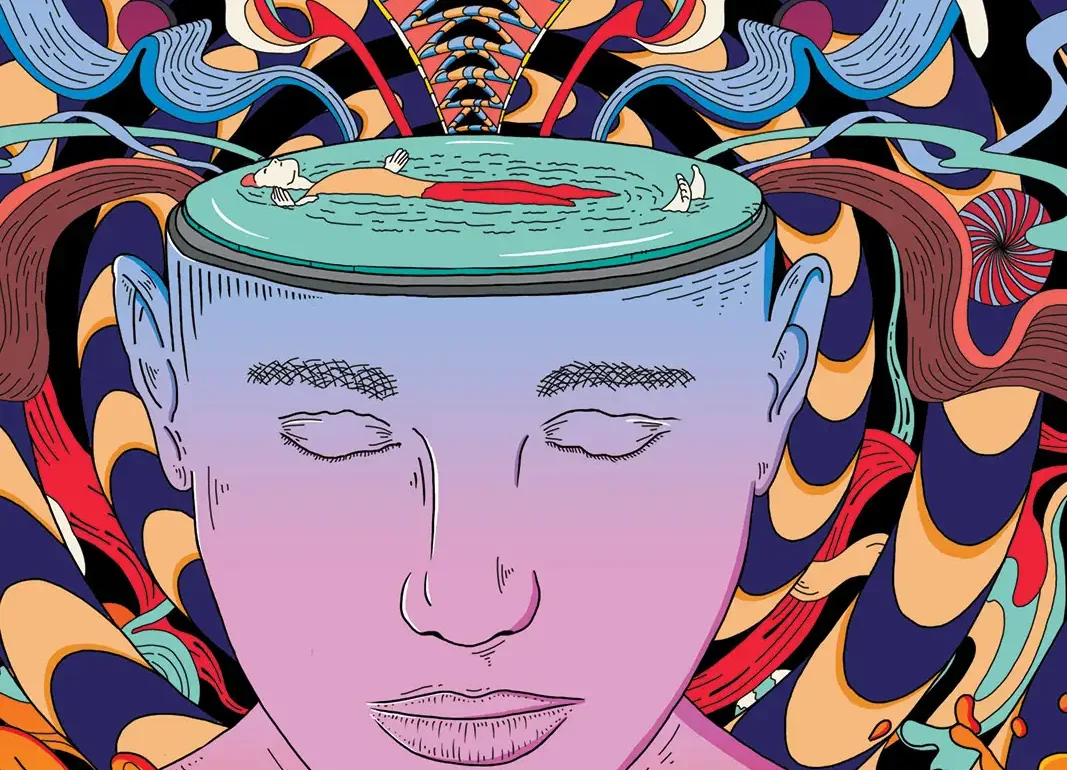The stoned brain is a strange thing. You might struggle to do something basic like make a cup of coffee, but if you get stuck on an idea you can go to hilarious and oddly insightful places. There’s a scientific basis for this too. Your brain usually institutes a kind of “cooldown” period after a neuron fires, but when you’re high, the neurons just remain active afterwards. This can set a “track” in your thought process, and you end up on a bizarre mental tangent which seems like the most important thing in the world until you wake up and re-visit in the cold light of day. I have woken up to some weird memos on my phone from high me, I’ll tell you.
But this is part of the fun of being high. You can ride that train anywhere. And – being high – by the time you’re nearing the end of the thought process you’ll have forgotten where the train started and why you even boarded it. Plus, every step along the way will be inexplicably hilarious, and naturally, you’ll have plenty of time to stop off for snacks on the way.
So, light your joint and let’s think about some fun things to think about.
Why Do You Think Differently When High? And What Types of Thinking is Being High Good For?
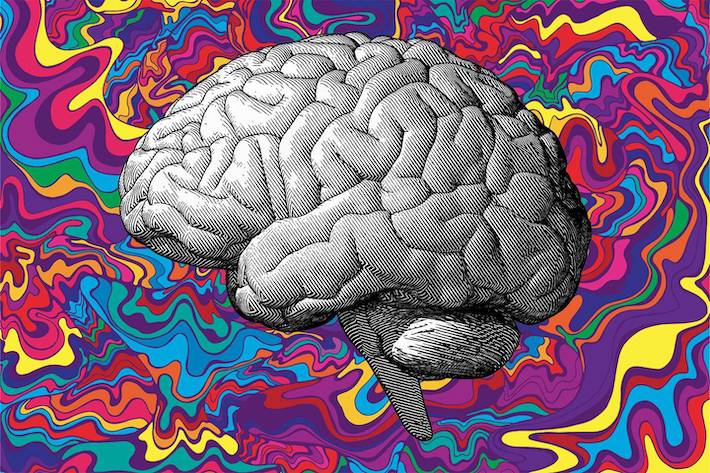
The phenomenon of “high thoughts” ultimately stems from what cannabis does to your brain. The description in the introduction is a key part of the story: this is where the “character” of your thought process comes from. When you’re sober you don’t have the same type of feedback loop going on and you can change to a different “track” with fewer hiccups along the way.
But the deeper answer lies in the effects of cannabis. Much of the discussion centers on a 1997 study which gave THC or placebo (double-blind) to 32 volunteers. The researchers found that activity increased in three main areas of the brain: the frontal cortex, the insula and the cingulate gyrus. Understanding exactly what these regions do is complicated, but a basic run-down is:
- Frontal cortex: Executive planning, strategizing and a “superego” type role, encouraging you to do the right thing even if it’s harder.
- Insular cortex: A wide range of functions, involved in things like consciousness, perception, emotions (including feeling compassion and empathy), providing emotional context to physiological experiences and helping us retain a sense of “self.”
- Cingulate gyrus: Behavior regulation, decision-making, language expression and speech, processing emotions and regulation of automatic motor functions.
These three areas of the brain experience changes when you’re high. So, for example, affecting your frontal cortex makes it more difficult to say no to another cinnamon roll and boosts your creativity, and affecting the insular cortex likely increases the sense of connectivity you feel with others and the world. The cingulate gyrus effects might explain the feeling of calm and improved ability to regulate your emotions.
Combine all these factors and you have the perfect storm for the unusual, insightful and often hilarious things you come out with when you’re high.
38 High Thoughts
So…
*hits blunt*
1 – If you were born deaf, what language would you think in?

2 – There are more nipples in the world than people
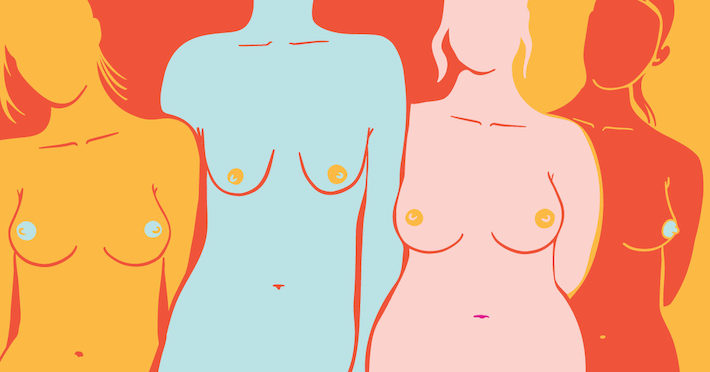
3 – Is the s or c silent in “scent”?
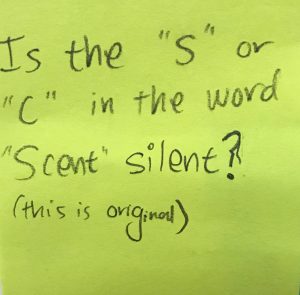
4 – If Professor X can move objects with his mind, why can’t he make his legs move?

5 – Streetlights in games are using real electricity

6 – If you are talking to someone on a video chat, and their video and audio have a lot of lag, are you actually talking to someone living in the past at that moment?

7 – When you light your lighter, your lighter gets lighter until your lighter is so light that your lighter won’t light.
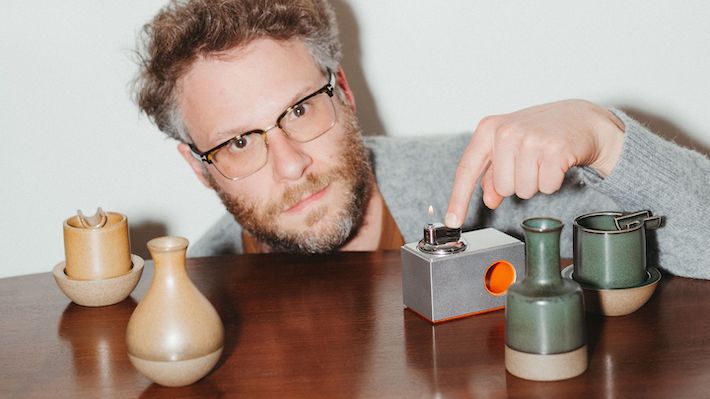
Funny High Thoughts
8 – Does being “up” for something mean the same thing as being “down” for something?

9 – Can dogs get a song stuck in their head?

10 – What does water taste like?

11 – Nothing is ever really on fire, but rather fire is on things.
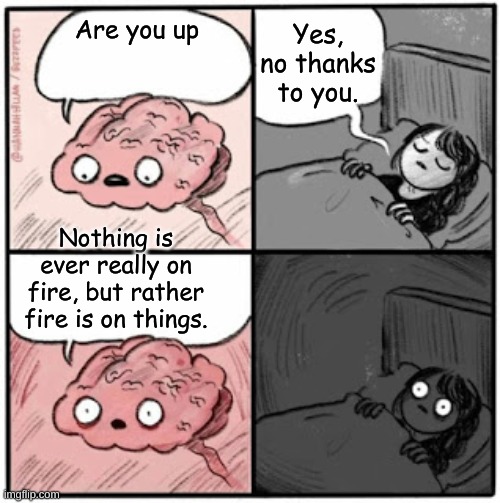
12 – Your knuckles are just finger-knees

13 – When you clean the vacuum, you become the vacuum cleaner

14 – Can you daydream at night?
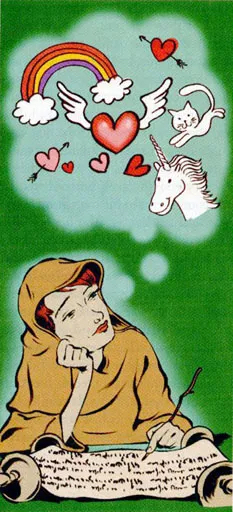
15 – If tomatoes are really a fruit, is ketchup a smoothie?

16 – What if every country has ninjas and we only know about Japan’s ninjas because they are so bad at being ninjas?

17 – How many times have I seen the same wild bird?

18 – What does each color taste like? Is red strawberry? Does every color taste like a fruit that’s the same color?

19 – Are bugs born knowing they can walk up walls, or do they just accidentally do it one day and go, “Holy shit check me out!”
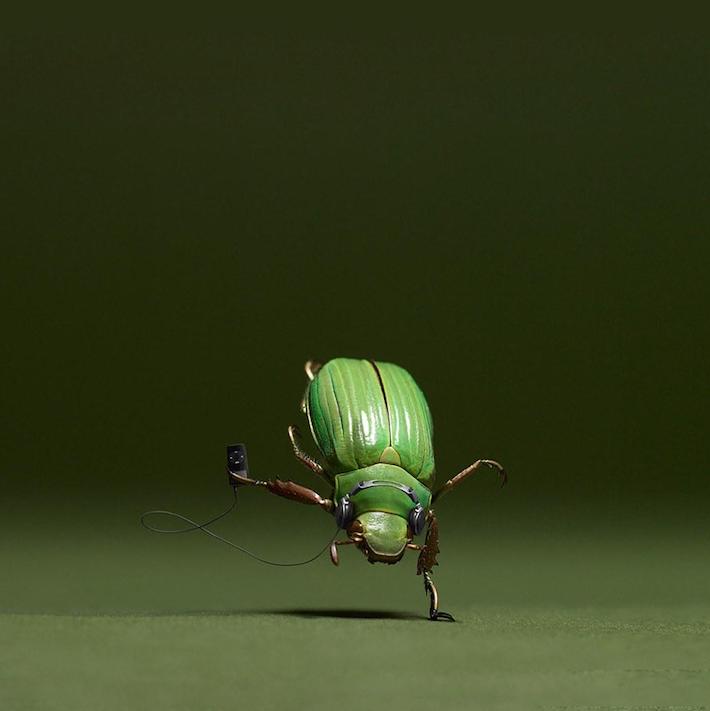
20 – Where does a thought go when it’s forgotten?
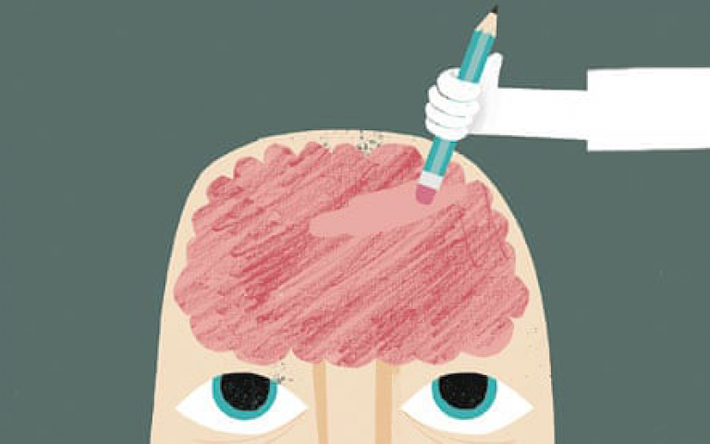
21 – Can you ever be in the wrong place at the right time?

Philosophical High Thoughts
But what if you want to really expand your mind while you’re high? Well there are plenty of things to consider that are a little more complicated than the vaguely jokey options above…
22 – The Ship of Theseus
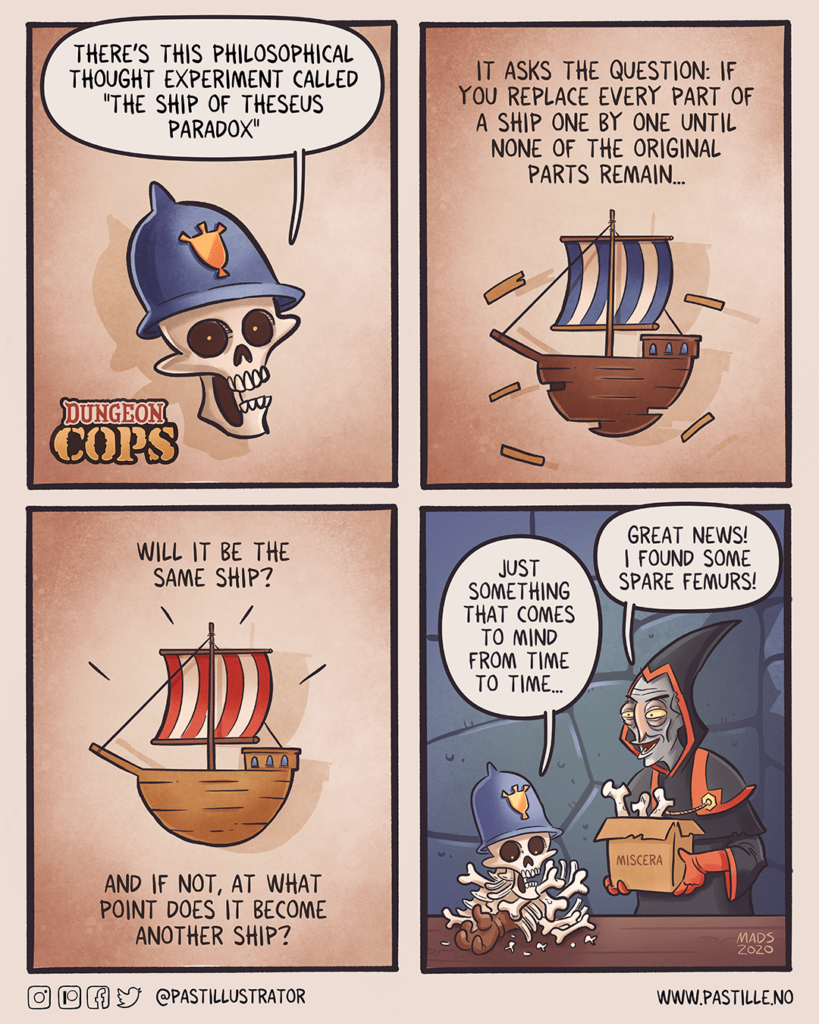
The ship of Theseus paradox asks: if you have an old ship, and replace some of the worst planks with fresh ones, and continue replacing them over time, until every original plank has been replaced, is it still the same ship? With one plank replaced, it seems obvious that the ship remains the same. But what about when half of it is gone? What about when every original piece is eventually gone?
This goes a little further in that your cells are constantly being replaced in your body. So if the ship of Theseus doesn’t remain the same, do you?
23 – “Everything we call real is made of things that cannot be regarded as real.” Is Bohr right?
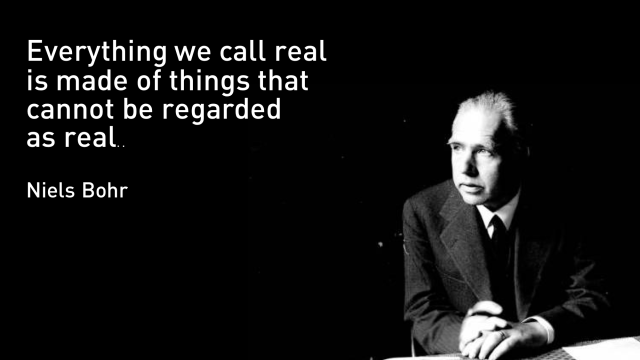
Niels Bohr, one of the pioneers of quantum physics, made the above statement. Essentially, every object around you is made of subatomic particles, and these don’t behave like normal objects. They aren’t even in one “location” at any given time, they are both a particle and a wave, and observing them can make them behave differently. Can you regard these particles as “real” or does that word lose all meaning? And if they aren’t real, how can they combine to make objects that are real?
24 – The Chinese Room
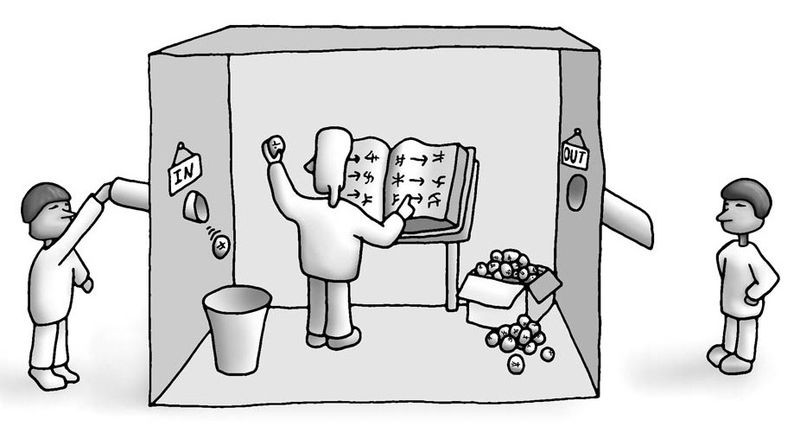
This classic thought experiment poses the following situation: imagine somebody sitting in a closed room, with Mandarin Chinese to English dictionaries and rules for translating from one to the other. Questions are posted through the door, in Mandarin, and the translator uses the dictionaries and rule books to respond with an appropriate answer. The person asking the question would assume that the person inside understood Chinese, but would they? Is being able to respond the same as “understanding” the language in this case?
John Searle, who proposed this thought experiment, originally intended to disprove the idea of a “strong” artificial intelligence. That is, the idea that an AI could exist that can perform any intellectual task a human can. Would such an AI be equivalent, or something more like the translator above?
25 – “Two possibilities exist: either we are alone in the universe, or we are not. Both are equally terrifying.” Pick one.

With uncountable galaxies and billions of stars in each one: can we really be alone in the universe? And would that be scarier than knowing there were aliens out there, somewhere?
Discussion-Starters
These are nice to think about on your own, but are perfect if you have friends over and want something to spark a high debate:
26 – When does a thing become art?
27 – What’s your theme music?
28 – Is a hot dog a sandwich?
29 – Would you rather be able to see your future or be able to see everyone’s future but your own?
30 – Would you rather know all the secrets of space or the secrets of the ocean?
31 – What genetic enhancement could make humanity a better species?
32 – If it was found that we originated on another planet, would that make all human beings aliens or not?
33 – If freedom is simply being able to do what you want, are animals freer than humans?
34 – If every neuron in a human was accurately simulated in a computer, would it result in human consciousness?

35 – Mary’s Room
Mary lives in a black and white room, reads black and white books, and uses screens that only display images in black and white to learn everything that has ever been discovered about color vision in physics and biology. One day, her computer screen breaks and displays the color red. For the first time, she sees color. Does she learn anything new?
36 – If you could press a button and receive a million dollars, but one stranger would die, would you press the button? And if so, how many times?

37 – In Star Trek, the transporters disassemble your particles in one place and re-assemble them in another: would you technically die each time you used them? Would the new version of you be a clone? Would your consciousness end?

38 – “What if you somehow managed to make a stereo travel at twice the speed of sound, would it sound backwards to someone who was just casually sitting somewhere as it flies by?” (from xkcd’s “What if?”)

Conclusion – Add to the List!
Having a selection of suggestions like this is a great way to get the most out of your high mind, but it’s important to remember that these are just jumping-off points. The most fun thing you can think when you’re high is something brand new, so if you’re smoking with others, start a conversation, speak your mind and ask anything fun you can think of. You can read questions and thought-prompts like this anywhere online, but they can never compare with the ones you or your buddies come up with.
Featured Illustration: Sharm Murugiah
